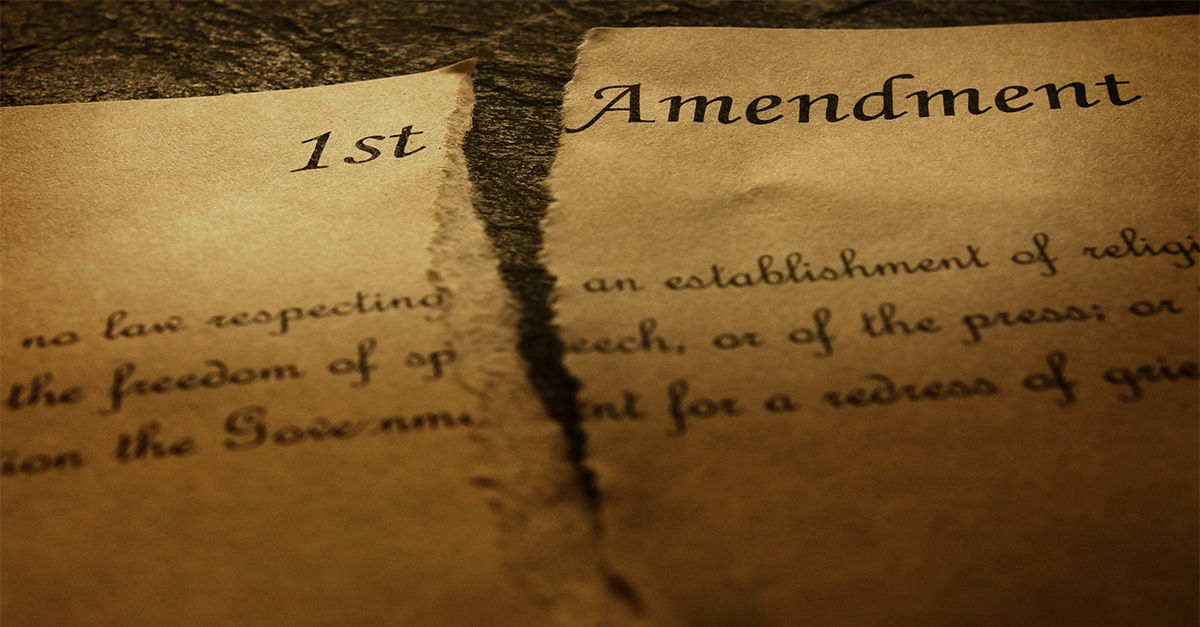


Get a free copy of Parental Rights & Education when you subscribe to our newsletter!

Media gaslighting aside, Idaho’s abortion law clearly states that a woman can get an abortion if it is necessary to save her life, but the question is whether federal health officials can twist an existing federal law to force ER doctors to perform elective abortions for non-emergent reasons.
The Supreme Court has sent a case involving Idaho’s law limiting abortion back to the U.S. Court of Appeals for the Ninth Circuit, claiming that the parties’ legal positions have changed.
Following the Supreme Court’s decision in Dobbs v. Jackson which overturned Roe v. Wade and allowed states to govern abortion law, the Department for Health and Human Services (HHS) issued guidance claiming that all physicians and hospitals must perform abortions if the health of the mother is at risk under the Emergency Medical Treatment and Active Labor Act of 1986 (EMTALA).
EMTALA requires hospitals and physicians to assess, treat, and stabilize patients that come to the emergency room, regardless of their insurance or ability to pay.
The Department of Justice claims that, thanks to the Supremacy Clause, EMTALA trumps state abortion laws, so it filed suit against the state of Idaho over its Defense of Life Act, claiming that it violates EMTALA.
Idaho’s law prohibits abortions unless a doctor deems it necessary to save the life of the mother.
Idaho argued that EMTALA never mentions abortion and, in fact, requires hospitals to care for and attempt to save the life of an unborn child. It also argues that the Biden administration is seeking to overrule state laws and turn hospitals into “federal abortion enclaves.”
Under the previous abortion standard established under Roe and Doe v. Bolton, doctors were able to perform elective abortions even if the mental or emotional state of the mother may be affected by having a child.
A district court judge issued an injunction against Idaho’s law, requiring “emergency abortions.” After appeal, a panel of the Ninth Circuit lifted the injunction, siding with Idaho. Following this, the full Ninth Circuit Court reversed that decision and again granted the injunction.
Before the Ninth Circuit had a chance to hear and rule on the merits of the case, the Supreme Court took the unusual step of taking up the case and sided with Idaho by lifting the injunction.
Yet after hearing oral arguments, rather than decide on the merits, the Supreme Court reinstituted the injunction and sent the case back to the Ninth Circuit to decide.
The case saw the nine justices write four opinions, with five of the justices deciding to send the case back to the Ninth Circuit. Justices Kagan and Sotomayor, joined in part by Justice Brown-Jackson issued one opinion; Brown-Jackson issued a dissent; Justice Coney-Barrett, joined by Justices Kavanaugh and Roberts issued another opinion; and Justice Alito joined by Justices Thomas and in part by Justice Gorsuch issued another dissent.
Barrett noted that during the hearing, the DOJ conceded that EMTALA does not allow for abortions in the case of mental health issues and that federal conscience protections would still apply so that physicians would not be forced to perform abortions in violation of their religious beliefs.
On the other hand, Barrett noted that the DOJ’s arguments about the limited scope of Idaho’s exceptions to its abortion restriction had been alleviated by Idaho’s clarifications on its law, including that certain conditions like ectopic pregnancies would be treated.
Barrett admitted that there are differences in the DOJ’s interpretation of EMTALA and Idaho’s law but argued, “Idaho represents that its exception is broader than the United States fears, and the United States represents that EMTALA’s requirement is narrower than Idaho fears.”
Explaining the decision to put the injunction back in place, Barrett wrote,
“The dramatic narrowing of the dispute—especially the Government’s position on abortions to address mental health and conscience exemptions for healthcare providers—has undercut the conclusion that Idaho would suffer irreparable harm under the preliminary injunction.”
While many media outlets are claiming that the Court is requiring Idaho to perform emergency abortions, Idaho already did so when necessary to save the life of the mother, and Barrett wrote that the law, “remains almost entirely intact.”
Justice Alito, however, excoriated both the Court, claiming that the Court should have ruled on the merits of the case, especially given the untenable position the DOJ attempted to argue.
Alito wrote that the text as well as the legislative intent of EMTALA is clear that abortion was never part of the law. “The Government’s preemption theory is plainly unsound,” he argued.
“Far from requiring hospitals to perform abortions, EMTALA’s text unambiguously demands that Medicare-funded hospitals protect the health of both a pregnant woman and her ‘unborn child.’ Thus, regardless of whether a hospital chooses to treat or transfer a pregnant woman, it must strive to protect her ‘unborn child’ from harm.”
As for Barrett’s argument about the narrowing of the differences, Alito was adamant that all parties involved, including the justices, acknowledged significant differences still exist.
“[W]hatever narrowing may have occurred during briefing and argument in this Court, both the Government and the State of Idaho fervently maintain that it matters whether the Idaho law is enforced. Do any Justices in the majority seriously disagree? Do any of them think that the parties, not to mention their armies of amici, are fighting about nothing?” Alito wrote.
He also doubted the DOJ’s claims that abortion would not be required for mental health concerns, pointing out that the solicitor general conceded that the term “health” in EMTALA includes mental health.
Alito rebuked the Court by stating,
“This about-face is baffling. Nothing legally relevant has occurred since January 5. And the underlying issue in this case—whether EMTALA requires hospitals to perform abortions in some circumstances—is a straightforward question of statutory interpretation. It is squarely presented by the decision below, and it has been exhaustively briefed and argued. In addition to the parties’ briefs, we received 46 amicus briefs, including briefs submitted by 44 States and the District of Columbia; briefs expressing the views of 379 Members of Congress; and briefs from prominent medical organizations. Altogether, we have more than 1,300 pages of briefing to assist us, and we heard nearly two hours of argument. Everything there is to say about the statutory interpretation question has probably been said many times over. That question is as ripe for decision as it ever will be….
Apparently, the Court has simply lost the will to decide the easy but emotional and highly politicized question that the case presents. That is regrettable.”
The Supreme Court’s decision to block Idaho’s law has no effect on another EMTALA-related case brought by the DOJ against Texas over its heartbeat law. That law bans abortion after six weeks unless continuing the pregnancy causes a risk of death to the mother or substantial impairment of her body. The Fifth Circuit Court of Appeals ruled in favor of Texas, blocking HHS from enforcing EMTALA guidance, but the DOJ has since appealed to the Supreme Court.

According to the media, cold and callous Idaho is now being dragged, kicking and screaming, into providing “life-saving” abortions because it couldn’t care less about protecting women. That is a ridiculous lie.
Idaho, like every other state in the United States, allows for an abortion if it is necessary to protect the life of the mother. Idaho already allows for treatment of ectopic pregnancies, which is not an abortion, and other dangerous pregnancy-related issues.
The Court sending the case to the Ninth Circuit is not a rebuke of Idaho, and it is not clear how the full panel of that court will rule, especially given the concessions made by the DOJ.
In fact, Idaho officials see this ruling as a win for Idaho that indicates that its law is not preempted by EMTALA.
Yet Alito and the other two dissenting justices make many very powerful points. There is a difference between the DOJ’s interpretation of EMTALA and Idaho’s protection for babies, and this will likely result in more abortions, not because they are necessary to protect a woman’s life but because EMTALA equates physical health with mental health, which, as Alito noted, has been exploited to allow elective abortions.
EMTALA does not require hospitals to kill unborn babies; rather, it requires hospitals to treat unborn babies as “patients” and try to save them, as well as their mothers. The language of the law is very clear on that point.
The Supreme Court should have ruled on this case and affirmed Idaho’s right to implement its abortion ban and save babies, but sadly, it punted and now this important decision is left to the Ninth Circuit.
However, if the Ninth Circuit should rule against Idaho, this case could end up back before the Supreme Court. At that point, given the Fifth Circuit’s ruling against the DOJ’s interpretation of EMTALA, the justices will, at that point, have little choice but to clarify whether states like Idaho have the right to determine their own abortion laws under the Dobbs precedent or whether federal agencies can undermine Congress by twisting federal statutes like EMTALA in order to force states to do their ideological bidding.
If you like this article and other content that helps you apply a biblical worldview to today’s politics and culture, consider making a donation here.
